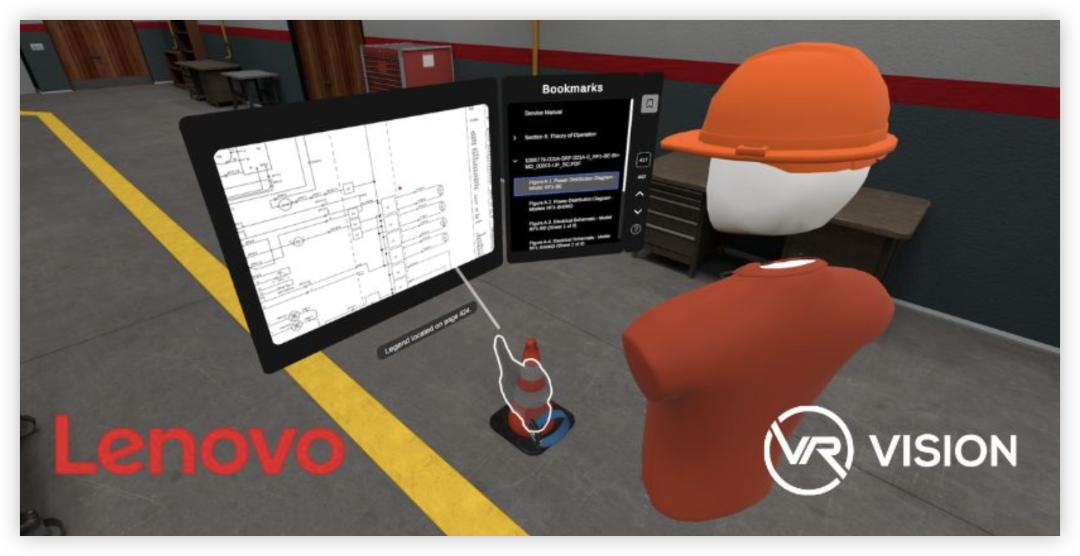AI Meets Immersive Learning: How Lenovo And VR Vision Reshape Enterprise Training

In today's fast-changing business landscape, corporate training demands are surging, yet the traditional one-size-fits-all model is clearly worn out. Low efficiency, limited engagement, and hard-to-measure outcomes push companies to search for innovation. The convergence of artificial intelligence (AI) and virtual reality (VR) is igniting a disruptive shift. Lenovo, the global tech giant, joins forces with Canadian immersive learning specialist VR Vision to build an adaptive, data-driven learning ecosystem designed to boost engagement, retention, and scalability worldwide.
Personalization, Data, And Global Reach: The Path Forward For Training
Future-proof training must transcend geography, tailor experiences to every learner, and rely on data. When AI intelligence meets VR immersion, learning enters a new era. This shift goes beyond technology. It reimagines talent development at its core.
Data Rules: Personalized Learning Is Within Reach
The Lenovo–VR Vision partnership centers on moving the focus from "courses learners must adapt to" toward "content that adapts to learners." VR Vision's Vision Portal platform anchors this approach. It centralizes deployment of training content and captures real-time performance analytics, making it possible to personalize outcomes.
Picture a technician struggling through a specific step. AI immediately detects the issue, adjusts course difficulty, adds guidance, or fast-tracks those who grasp the material quickly. VR Vision co-founder Lorne Fade likens it to having a personal coach inside the headset. This smart adjustment speeds up learning and improves retention by simulating real scenarios with deep immersion.
Toyota's Proof: Millions Saved In Training
VR Vision's collaboration with Toyota Material Handling showcases the potential of AI plus immersive learning. Toyota rolled out VR training across more than 300 dealerships worldwide. Technicians use XR headsets and custom software to practice complex mechanical systems in risk-free environments.
The results are striking: over 10,000 employees trained and more than $1.5 million saved annually. Even more impressive, Toyota now onboards faster and maintains consistent performance. Lenovo XR product manager Phillip Ruenprom notes that at scale, immersive training demands more than content and hardware. Management, security, and analytics matter too—and Lenovo excels there.
Crossing Language Barriers: Making Global Training Accessible
Beyond personalization, AI ramps up inclusivity. The VR Vision platform offers AI-assisted multilingual translation, so employees in Japan or Germany can train in their native languages, fostering smooth understanding and collaboration.
Lenovo's robust infrastructure keeps these global experiences secure and standardized. Integrations with device management systems such as Meta Horizon allow remote updates, headset monitoring, and content distribution, making enterprise-wide VR adoption far easier.
Accelerating Content Creation: Generative AI's Promise
Lenovo and VR Vision are also exploring how generative AI can transform immersive content development. Building a detailed virtual factory or medical lab can take weeks of manual 3D modeling today. Tomorrow, AI could automate that tedious work. Fade reveals they are testing tools that turn text prompts or CAD files into environments automatically, cutting design timelines from months to hours.
Ruenprom says this is part of Lenovo's wider AI ecosystem: "Our vision is to let enterprises create, manage, and scale immersive content without deep technical expertise."
Continuous Optimization: Data-Driven Performance Gains
One standout advantage of AI-powered VR training is its data exhaust. Every interaction—from completion times to accuracy—becomes measurable, helping companies spot patterns and iterate on their programs.
Ruenprom highlights the powerful feedback loop. Organizations no longer need to guess whether training works. They can see precisely where employees excel or struggle. That precision is mission-critical in high-stakes industries like aviation and energy. Together, Lenovo and VR Vision are ushering corporate learning into a data-fueled realm where immersive insights drive continuous performance evolution.
Conclusion
The Lenovo–VR Vision alliance signals a major trend in enterprise learning: the deep fusion of AI, analytics, and immersive tech. Pilot efforts from years ago are now scaling globally thanks to mature software and hardware ecosystems. Fade stresses the goal is not to replace human instructors but to equip them with exceptional tools for personalized guidance, measurable progress, and compelling experiences. In an era defined by automation and AI, Lenovo's XR platform acts as both enabler and bridge, aligning cutting-edge tech with real-world learning needs. Ruenprom sums it up: "The future of workforce development will be immersive, intelligent, and data-driven. It's happening right in front of us."
分享文章
3篇相关文章
No More Poking Virtual Keyboards: VR Finally Gets a Truly Satisfying Input Upgrade
2025-12-18
Typing in VR has always been a pain. The upcoming Yap voice keyboard lets you ‘talk’ your way through everything in virtual worlds.
Meta Quest Hand Tracking 2.4: Your Hands Finally Keep Up With Your Brain in VR
2025-12-18
Meta Quest’s Hand Tracking 2.4 update supercharges the high-speed mode for smoother, more accurate gesture control. Here is a deep dive into its three core technical upgrades and what they mean for VR immersion.
VR Karting: When Virtual Meets Reality, The Next Racing Era Arrives
2025-11-17
French company EVA fuses real kart driving with virtual worlds to deliver an unprecedented immersive racing experience and redefine entertainment.